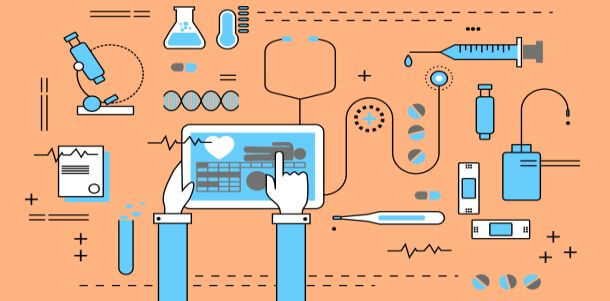How Big Data Is Affecting Pharmacy Practice
The use of big data has been on the rise in recent years because they offer a better way for companies to analyze customer needs and wants than ever before. Pharmacies are no exception as many of them have benefited from utilizing big data in their operations.
One good example of how pharmacies utilize their data is in expediting drug manufacturing, especially in the active pharmaceutical ingredient (API) to sterile compounding processes. You can visit this page to know more about it. Furthermore, this article discusses other ways big data affect pharmacy practice.
What Is Big Data?
Big data is a term for analyzing massive data sets. They use artificial intelligence such as powerful computers and complex techniques to extract and uncover insights, trends, or patterns that may not be seen if only small amounts of information were analyzed.
The larger the data set size and its associated metadata, the more potential there’ll be for deeper understanding and abundance of information.
Big Data And Pharmaceutical Industries
Big data in the pharmaceutical industry have made positive changes throughout the years because they make the process of drug discovery more successful. As a result, it makes monitoring of prescriptions more efficient and cost-effective, which helps patients have personalized care.
Apart from this, here are some other ways big data is contributing to the industry:
Faster Drug Discovery
One of the advantages of big data is through the process of pharmaceutical discovery. When big data is applied to the industry, it can help identify new drugs possibly useful for treating specific types of diseases or conditions.
Using artificial intelligence and deep learning techniques on large data sets from past drug trials helps predict which medications are likely to succeed in future clinical research studies. This paves the way to the faster discovery of new drugs.
As a result, the time it takes for medication discovery is drastically reduced compared to using traditional methods.
Thorough Monitoring Of Prescription Drugs
When doctors prescribe medication to patients, there’s a likelihood not all of them may follow the prescription. This occurrence leads to a cycle of taking medicine, feeling better, not taking meds, and getting sick again. This situation used to almost be impossible to track until big data analytics came.
Experts can now analyze data from pharmacies and pharmaceutical insurance on the number of patients not taking their prescribed medication. These results are then used in formulating policies and practices to resolve these issues.
Furthermore, prescription drug abuse is also one of the trends and problems identified with the help of big data. Records from a pharmacy, insurance claims and many more can be used to track patterns of healthcare professionals overprescribing. They may also be used to assess how many patients consume more than their advisable dosage of medication.
Personalized Medicine
Medical practitioners and facilities are leveraging big data to determine individualized treatment for specific patients. They do this by looking at a patient’s genetics and using their information to prescribe medications working for them.
To illustrate, if a person’s DNA is found to be highly responsive to a drug, the doctor can prescribe the medicine to them as this may have better odds of success. On the other hand, if the DNA reacts adversely or none at all, then doctors can look for alternatives.
Such practice has been shown in studies to improve outcomes among patients receiving chronic treatments.
Source Of Privacy Concerns
Despite its significant usage, big data can still negatively affect pharmacy practice in different ways. This includes privacy and data validity.
Information is collected from many sources and then analyzed to find patterns. The problem with this process is big data can collect information about any person without their consent or knowledge. It means there could be a public access to a person’s private information such as their health status and what illnesses they have. If the others can access what type of medication you’re taking, they might also be able to identify what condition you have.
The availability of data sets is a driving force in the big data revolution. However, patients or customers may enter data not just for their medical records but also for other health-related platforms. If a patient enters medical data in online communities, the validity may be questionable since it’s unlikely forums will have regulations and practices to maintain privacy and avoid conflicts of interest.
Final Words
It isn’t easy to find a balance between innovation and traditional practices, particularly in the pharmaceutical industry. It puts professionals in a precarious position as they struggle with utilizing new technologies while also maintaining the high quality of patient care.
The possibilities for big data transforming pharmacy practices are truly endless. However, challenges do exist and must be addressed before any of these can happen.



























